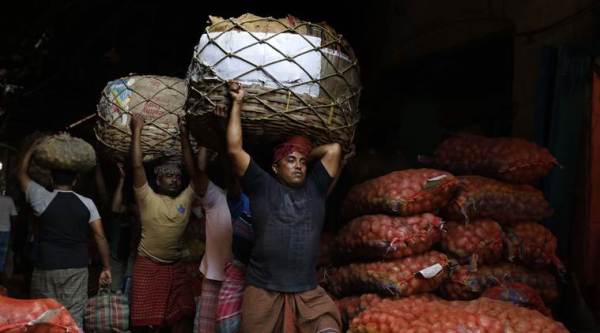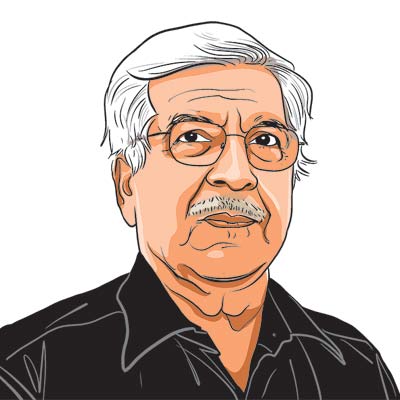Policy paralysis
Government seems blind to the crisis in agriculture, slowdown in industry

Balancing farmer interests and fighting inflation needs the kind of strategic thinking that is not seen much apart from by the central bank. (Express Photo /Partha Paul/File)
This column hates to say we said so. Prices are not falling but the farmer is getting a rough deal. Industrial output and GDP growth is not picking up. It all comes out on the business page but the usual admonition that the economy will pick up is repeated by the senior-most officials from whom we actually expect answers to real problems.
The terms of trade were doing badly for agriculture and the farmer was not doing too well. Big MSP increases without policy support, we argued, would not work and so it was. In the third week of October, news bureaus are reporting that mandi prices in bajra, maize, cotton and major oilseeds and pulses were ruling below support prices. Ten to 40 per cent deficiencies are common. It’s an avalanche, so the official stance is to say the rabi will be better! The claim that a 50 per cent increase in MSP has been provided over cost of production is not kosher any more on the field, apart from the criticism of many observers.
There is only token procurement in pulses and oilseeds because the prices the farmer has sown for are much higher and tariff policies are slow and don’t always help him because they are announced after the imports have taken place. The government hardly ever imposes a high enough tariff because of the needs of the consumer and so the fight goes on. When prices are rising this is a tough policy bind.
Balancing farmer interests and fighting inflation needs the kind of strategic thinking that is not seen much apart from by the central bank. NAFED does some procurement but it is usually short of funds. The real issue of markets, first-stage processing and supply chains, lies elsewhere. As an example, getting Walmart to buy farmers produce and give them space in its warehouses is far more important as an alternative supply channel. But we are also told that its case is slowed down because of powerful lobbies.
Prices are simultaneously rising for the consumer. Policymakers took credit for retail inflation falling from 4.85 per cent in July to 3.69 per cent in August but it was left to Cassandras like me to say that last year it was 3.28 per cent and there is seasonality in food prices. It was 3.7 per cent in September but now the wholesale price index rising year-on-year to 5.13 per cent demands a policy response, before the wage price agitations start in a pre-election year. In the third week of October, a former governor of the RBI gives us great comfort by complimenting economic policy and also sagely advising that the continuation of a strong central government next year will be good, but another not-so-savvy governor, Y V Reddy, has warned of the pitfalls ahead.
The turnaround for the worse in industrial output is the most distressing. It was chugging along merrily and clocked 6 per cent in July with a rate of 5.4 per cent growth in the period March to July this year. We were quite optimistic and this column took the position that now is the time to consolidate, push up investment which was lagging and ensure a good year ahead. But the index of industrial production, that terrible mirror face of industrial output, went down to a low of 4.35 in August. This is a setback.
It would be good if policy-making took this as a temporary hiccup and got back to the drawing board on giving industrial output the stimulus it needs. It may be said that in a pre-election year, this is a tall order requiring as it does some tough resource raising decisions. But then, if the economy responds with a four-month lag, which should be expected from most policy models, higher industrial output and employment will again underline that good economics is also good politics. Meanwhile, will somebody in authority at least talk of the real problem?
The writer, an economist, is former Union minister
For all the latest Opinion News, download Indian Express App
More From Yoginder K. Alagh
- The Uncovered Last MilePolicymakers need to ask why programmes for farmers do not reach them...
- A blueprint by bureaucratsRecent measures to defend currency are insufficient, poorly thought...
- Fact FightingStatistical estimates on the economy are sacred and need to be treated as such...







































No hay comentarios:
Publicar un comentario